
Health Equity and Anti-Racism Action Plan
March 2022 Quarterly Progress Update (Q2)
Health Equity and Anti-Racism Action Plan
A group of committed workforce members created the Health Equity and Anti-Racism Action Plan to prioritize the most powerful actions to address systemic racism within Seattle Children’s from late 2021 through 2024.

Read a letter from Bonnie Fryzlewicz, senior vice president and chief nursing officer and Dr. Jeffrey Ojemann, senior vice president and chief medical officer.
“Meaningful and transformational change takes time, commitment and resolve. To live out — and live up to — Seattle Children’s mission, vision and values, the organization is on a journey to make changes that eradicate racism and dismantle systemic inequities within pediatric healthcare.”
Taking Action
Seattle Children’s Health Equity and Anti-Racism Action Plan has eight commitments and nine outcome measures for fiscal year 2022. Learn more about what the organization is committing to over the next few years and what progress is being made.
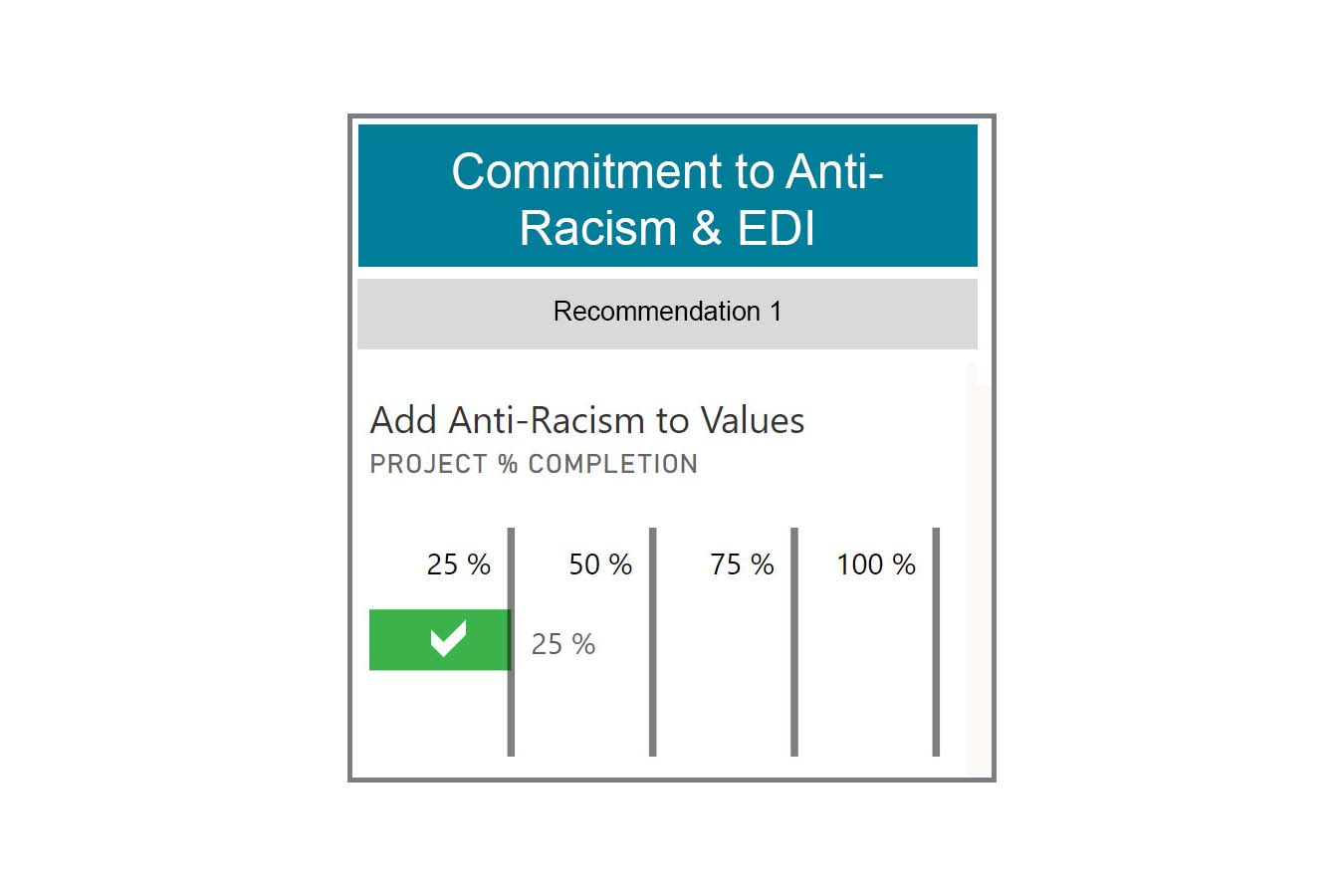
Commitment to Anti-Racism and EDI
Outcome measure
FY22 and FY 23 Update Seattle Children’s values to include anti-racism to hold leaders and workforce accountable through the performance evaluation process.
Progress update
In January, the Board of Trustees approved updates to Seattle Children’s vision and values statements that reflect the organization’s commitment to health equity and anti-racism.
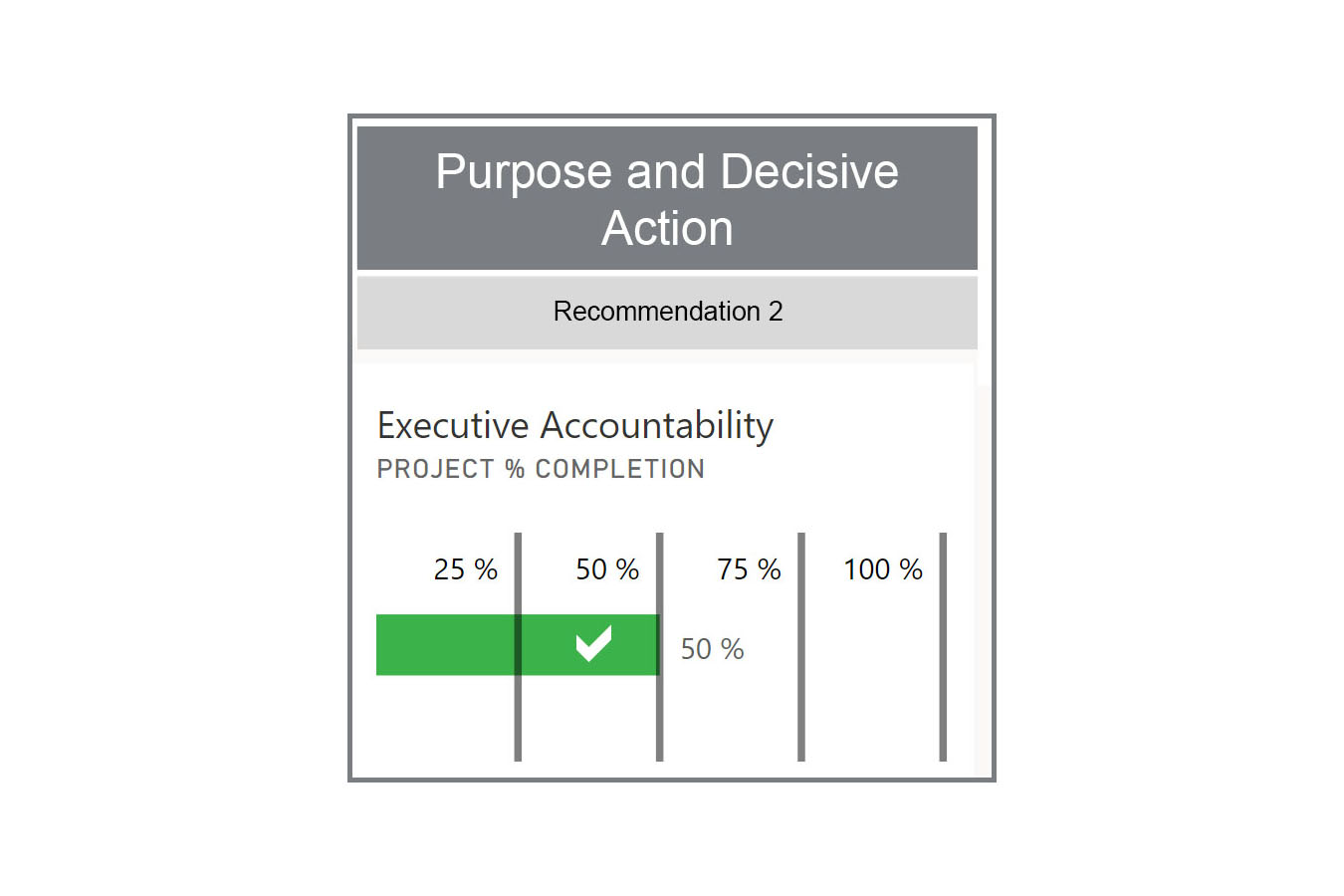
Purpose and Decisive Action
Outcome measure
FY22 Link executive compensation to achievement of Action Plan outcomes.
Progress update
In September 2021, the Board adopted a revised executive compensation model which includes four equity goals. Now, 16% of executive compensation is tied to meeting the organization’s equity, diversity and inclusion goals. In October 2022, executives will be evaluated based on the new compensation model and achievement of Action Plan outcomes.
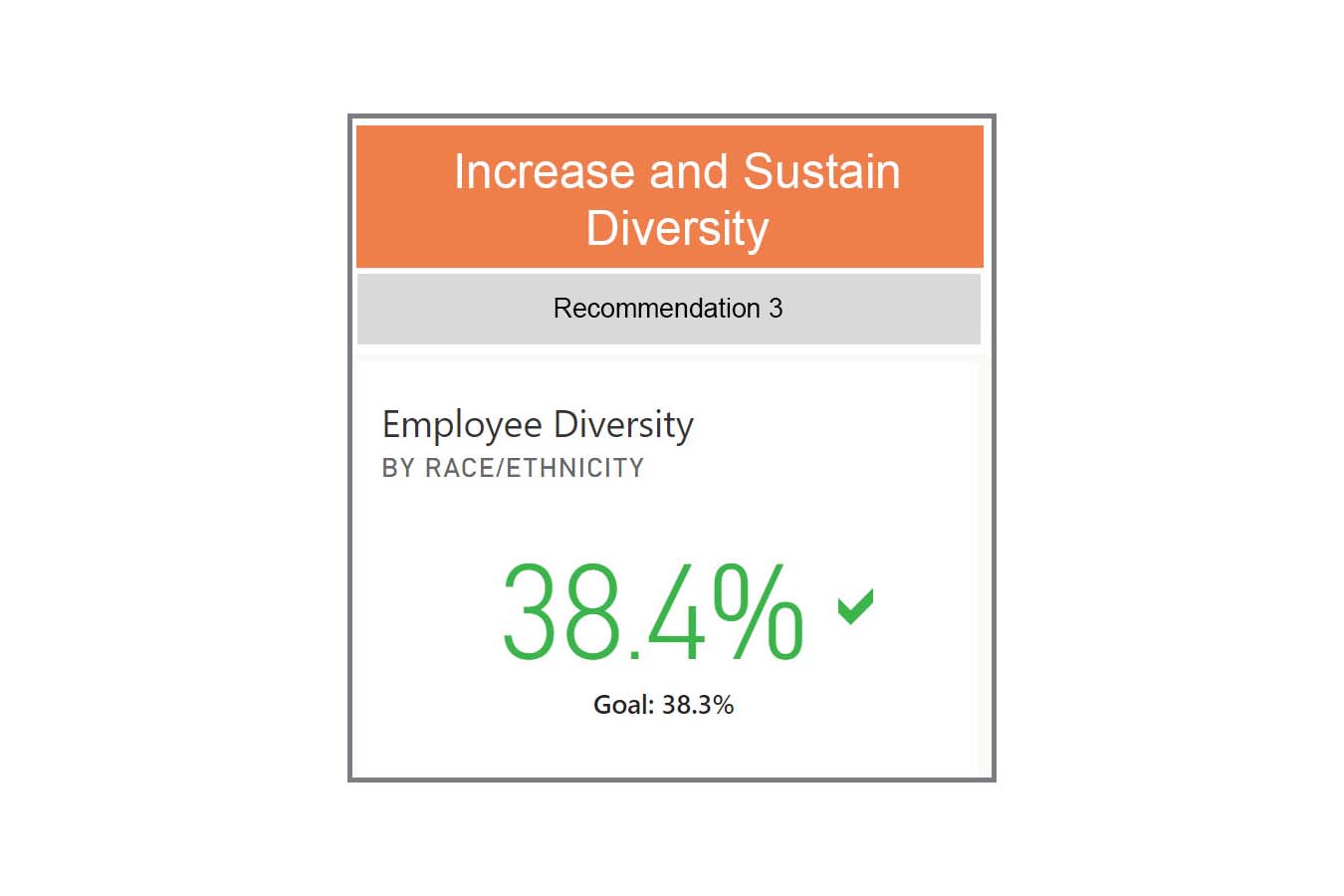
Increase and Sustain Diversity
Outcome measure
FY22: Increase employee diversity by race/ethnicity to 40%, to further reflect patient population.
Progress update
The phase 1 goal of 40% racial and ethnic diversity is tracked through quarterly milestones. The Q2 FY22 goal is being met, with a result of 38.4%. Ongoing work to increase employee diversity includes ensuring diverse candidate pools, hiring managers focusing on diverse hiring, targeting recruiting efforts to diverse populations and broader outreach by recruiters focused on diverse hiring.
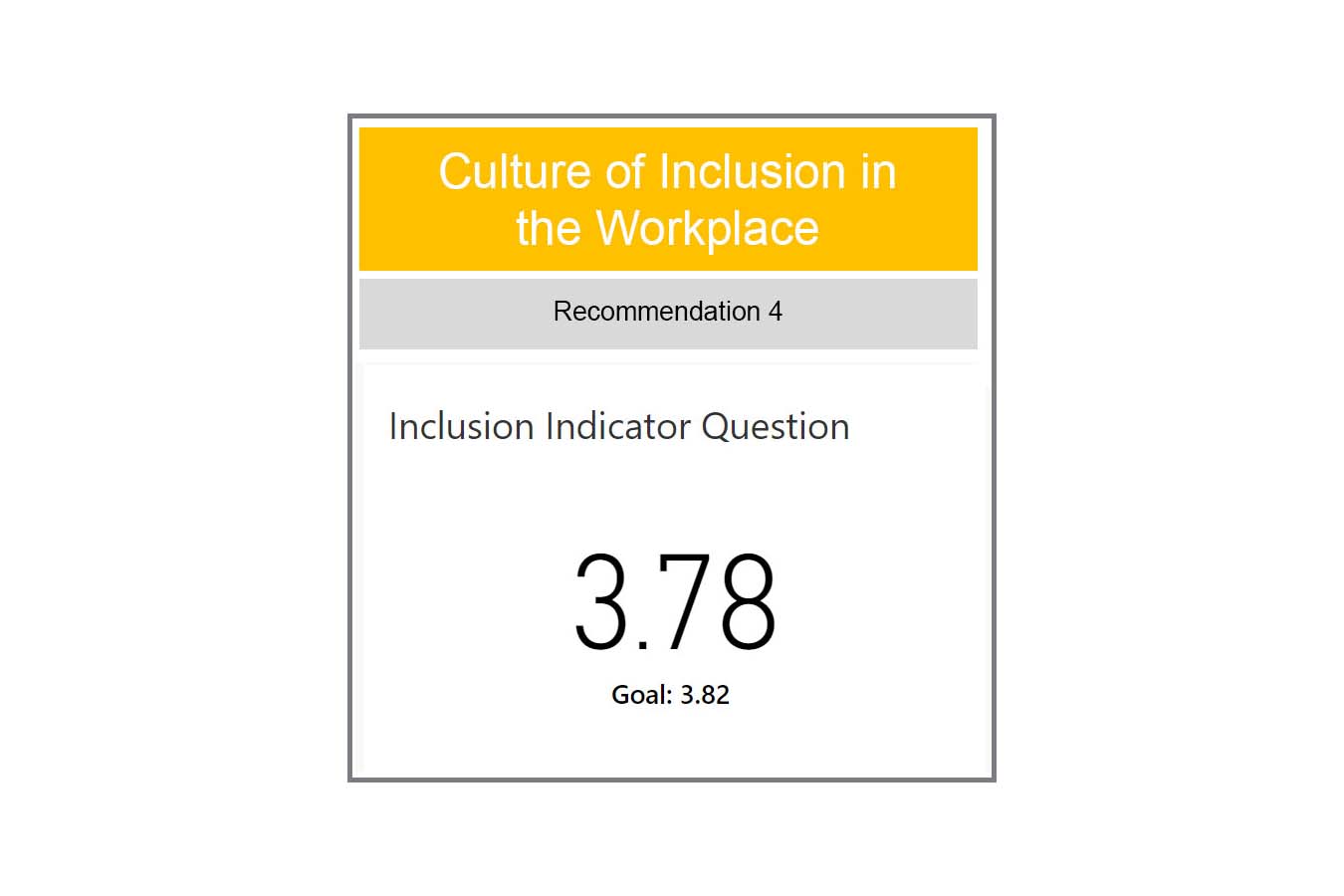
Culture of Inclusion in the Workplace
Outcome measure
FY22: Improve scores on the Inclusion Indicator question “This organization values workforce members from different backgrounds” from 3.78 (FY21 baseline) to 3.82 out of 5. This represents a clinically significant increase.
Progress update
The most recent Workforce Engagement Survey, conducted in fall 2021, provides a baseline score for this question of 3.78 out of 5. The target score for FY22 is 3.82 (out of a best possible score of 5), which represents a clinically significant increase. The Workforce Engagement Survey, including the question, “This organization values workforce members from different backgrounds,” will be administered to our workforce in the fourth quarter of FY22.
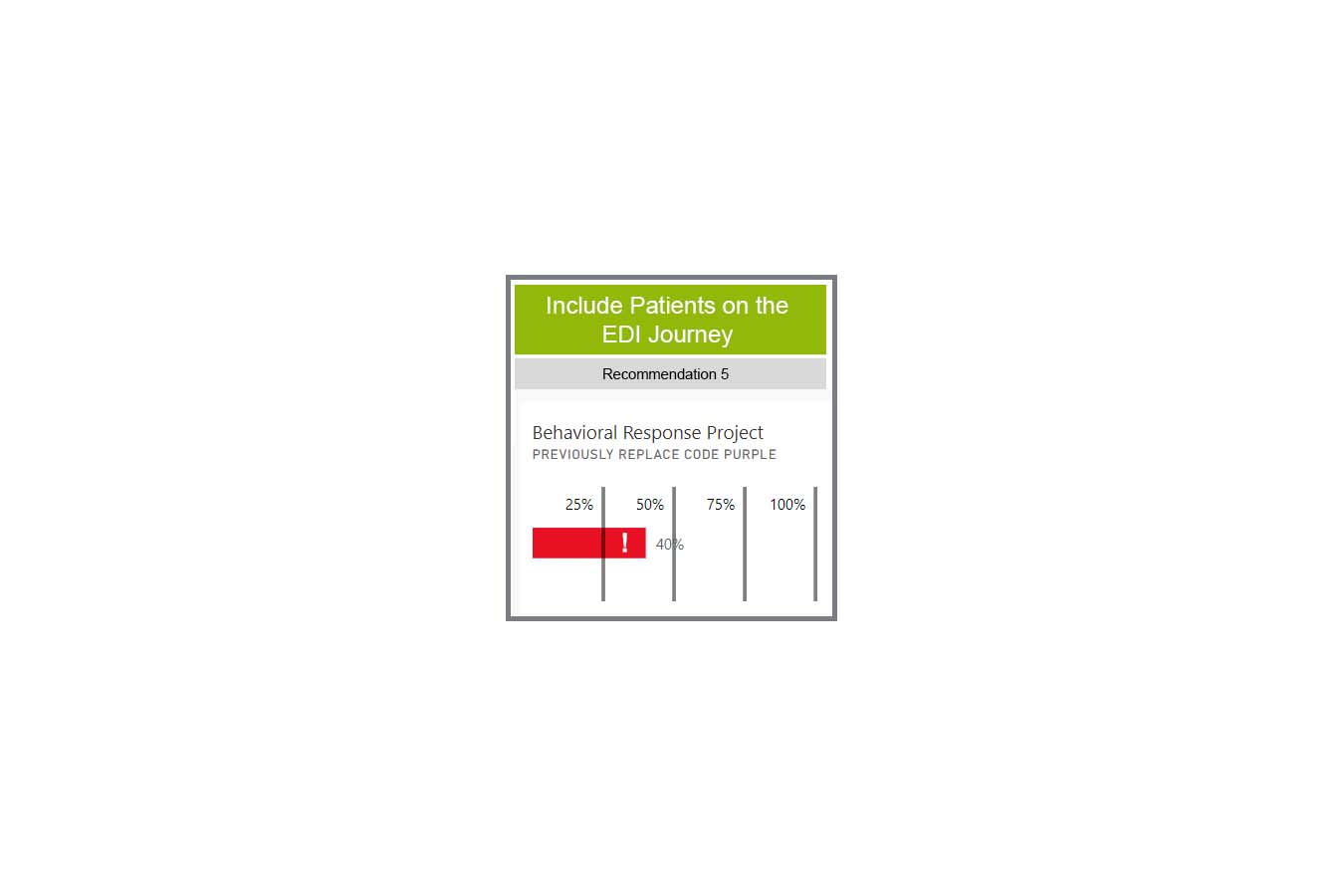
Include All Patients on the EDI Journey
Outcome measure
FY22: The Behavioral Response Project will replace Code Purple with an equitable and anti-racist structure that is co-created with patients and families to ensure it is culturally responsive and provides psychosocial support.
Progress update
A team comprised of caregivers/families, community representatives and workforce members is working to recommend solutions that will inform creation of a new behavioral response system. In parallel, additional Behavioral Support Team employees were hired and will support hospital units with higher Code Purple use. The Behavioral Support Team is also developing an equity-centered debrief process. Red status is due to delays in family and community recruitment for co-design work, for which a mitigation plan has been developed.
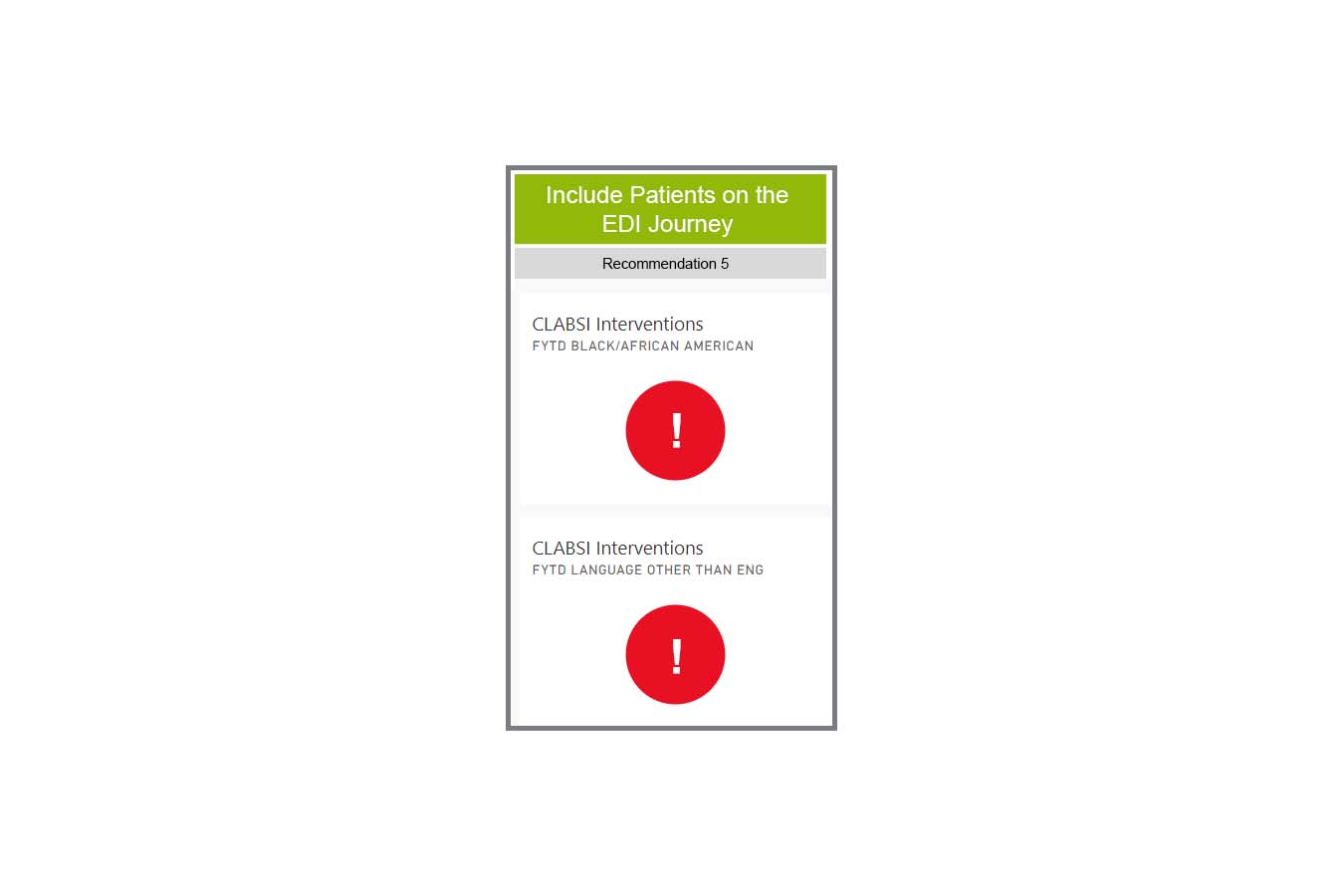
Include All Patients on the EDI Journey
Outcome measure
FY22: Eliminate overall non-mucosal barrier injury central line associated bloodstream infection (non-MBI CLABSI) disparities for Black and African American patients and patients who use a language other than English.
Progress update
The dot color and symbol depict our completion status for the projects being implemented to reduce or avoid CLABSIs. Due to limited data and the risk of a single non-MBI CLABSI occurrence significantly skewing data, the non-MBI CLABSI rate will be reported yearly (October). Completed interventions include ensuring observation of care with central lines and transparency in data sharing with race ethnicity and language filter, and improving the formal CLABSI event review process with an equity perspective. A central line care nurse role (pilot on Cancer and Blood Disorders Center - Inpatient) has been developed and candidates have been hired, however progress is behind schedule. Interventions to solicit feedback on central line care from patients who identify as Black/ African American and patients who use a language other than English are in progress but behind schedule.
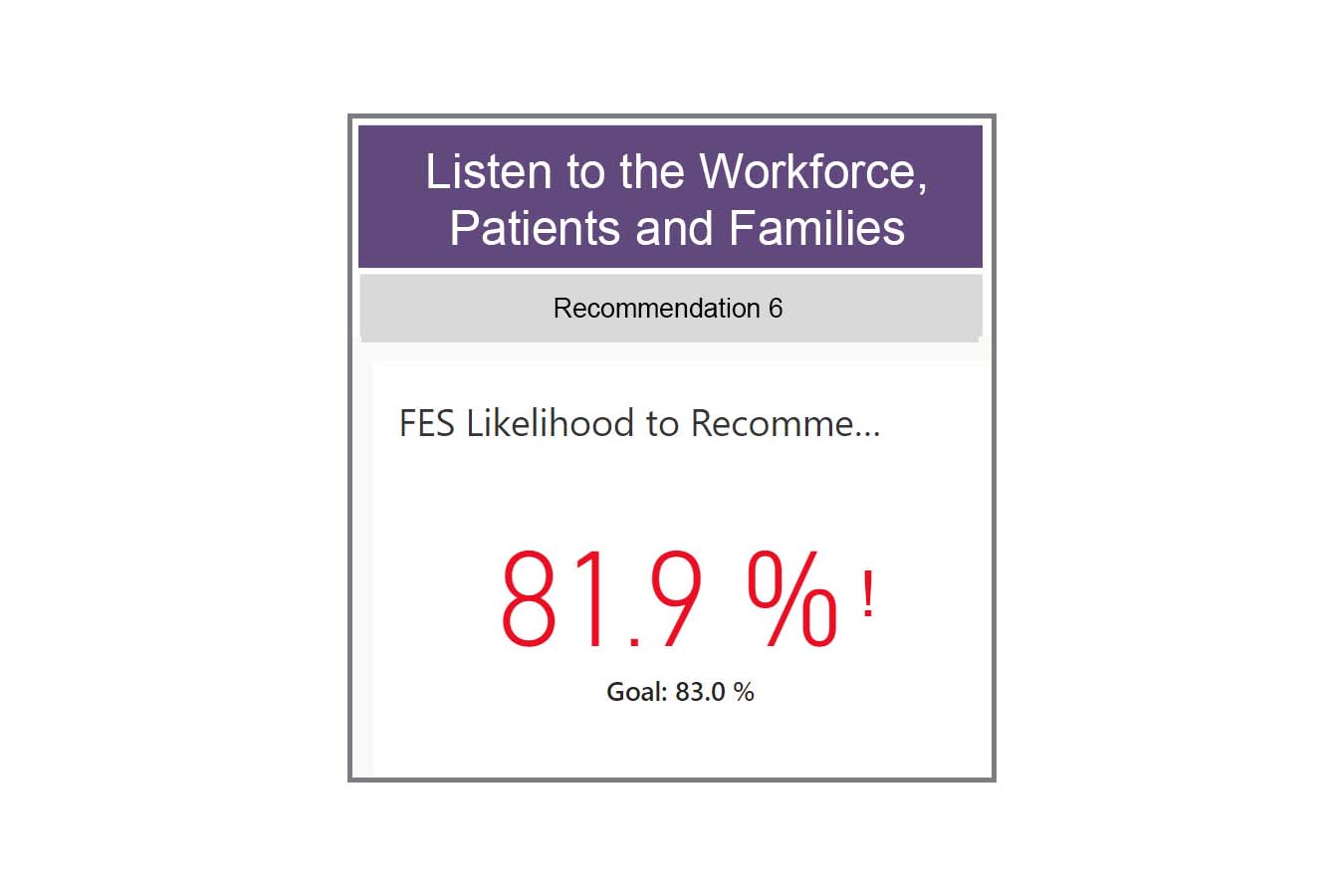
Listen to the Workforce, Patients and Families
Outcome measure
FY22: Improve the Family Experience Survey (FES) score from a baseline of 81.6% to 83.0% by Sept. 30, 2022. The target is set based on the performance of pediatric hospitals against whom we are benchmarked.
Progress update
The FY21 result of 81.6% provides the baseline for the FY22 target of 83.0% (out of a possible 100%). First quarter scores improved slightly over baseline. At the end of Q1 (October through December 2021), scores fell below the FY22 target by 1.1%. The greatest improvement was in the scores for ambulatory (“outpatient”) appointments. Hospital (“inpatient”) and Emergency Department (ED) scores were lower than baseline, reflecting families’ concerns about COVID-19 safety and long ED wait times during the Omicron surge.
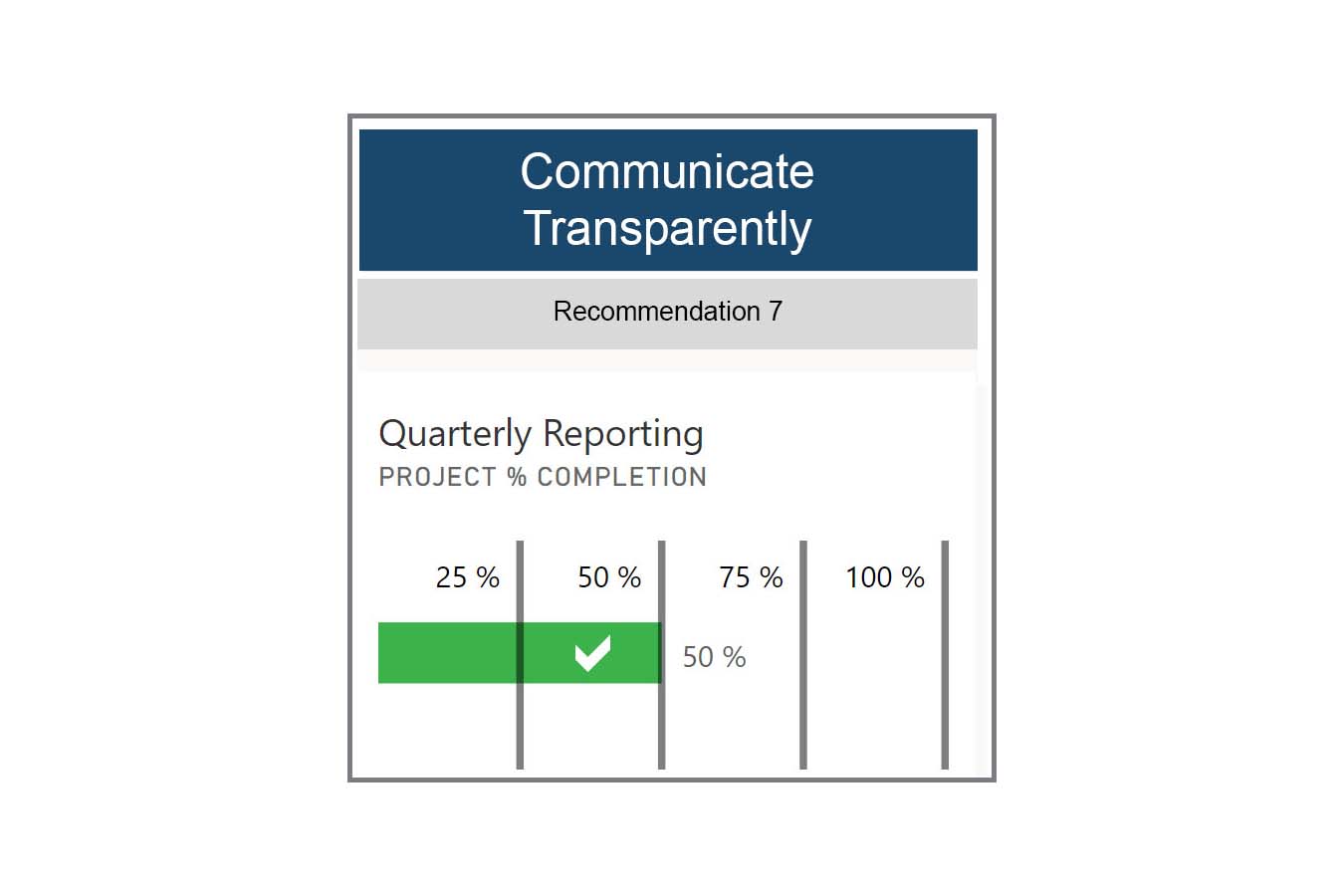
Communicate Transparently
Outcome measure
FY22 Redesign reporting on anti-racism and equity, diversity and inclusion efforts and commit to quarterly reports.
Progress Update
Reports have or will be released in December 2021 and March, June and September 2022. The release of each report equates to 25% completion of the FY22 commitment.
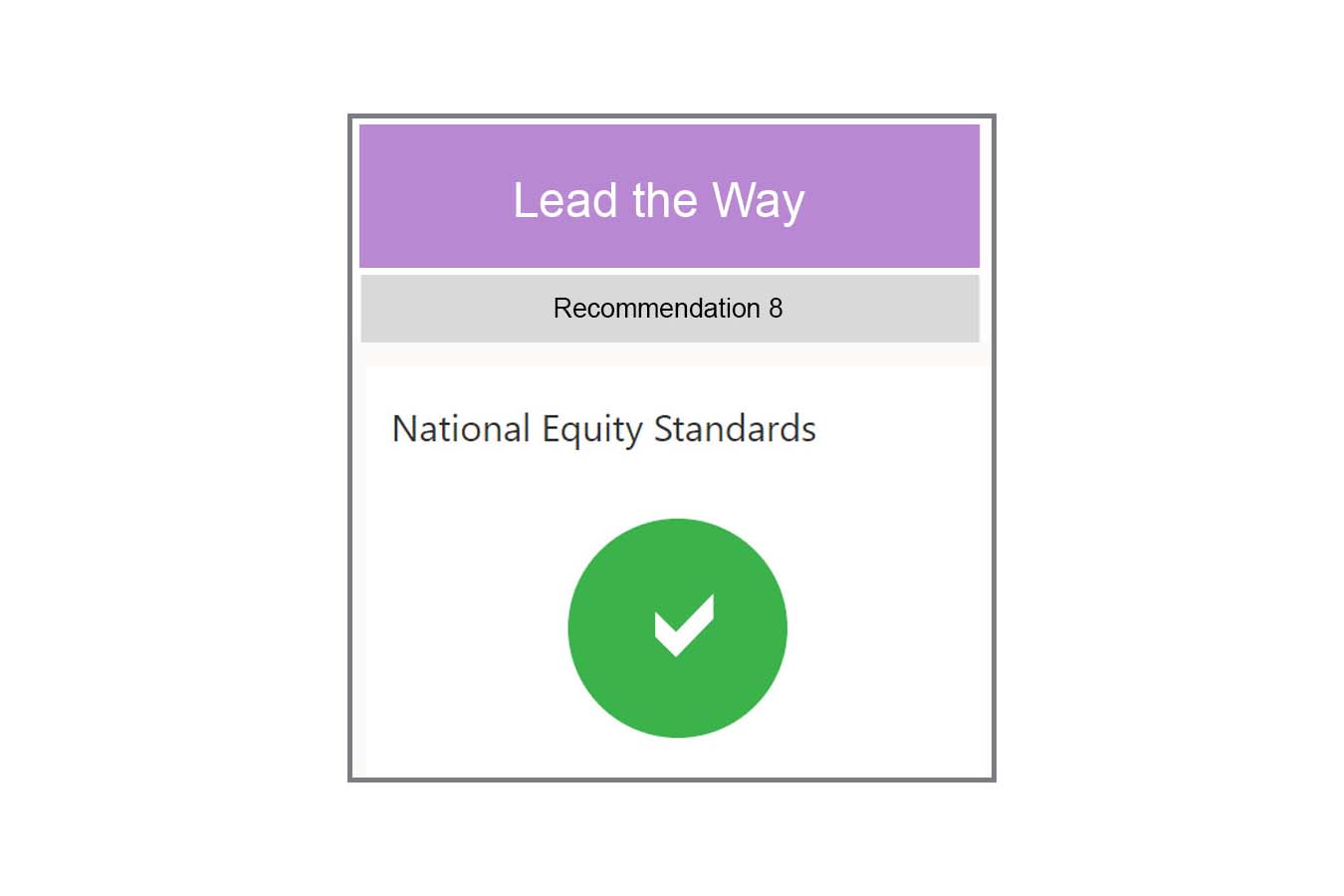
Lead the Way
Outcome measure
FY22 Contribute to the establishment of national health equity standards; actively engage through participation in the U.S. News & World Report Best Children’s Hospitals Health Equity/Disparities/Inclusion working group.
Progress update
Representatives from Seattle Children’s, along with people from 12 other pediatric hospitals across the country, participated in a U.S. News & World Report working group tasked with recommending a methodology to evaluate equity, disparities and inclusion in overall hospital quality assessment. New measures have been incorporated into the recently released U.S. News & World Report 2022 survey that will help shape the 2022-2023 Best Children’s Hospitals rankings.
“Workforce Inclusion, Diversity, Equity and Access has been so collaborative and supportive of us. We have built a community through Pasifika and a wider community with the other Inclusion Networks. In the midst of a lot of division right now, it has brought us together. And that’s priceless.”
– Malia D’Alio, chair of the Pasifika Inclusion Network
Report Highlight

Transforming the Behavioral Response System
The Behavioral Response Project is the current effort to design a new and sustainable anti-racist behavioral response system to replace Code Purple. Code Purple is a process to initiate a de-escalation response when other interventions are not successful. Read more.
Review Quarterly Progress Updates
September 2022 web page, September 2022 (PDF) (en Español)
June 2022 web page, June 2022 (PDF) (en Español)
March 2022 web page, March 2022 (PDF) (en Español)
December 2021 (PDF) (en Español)